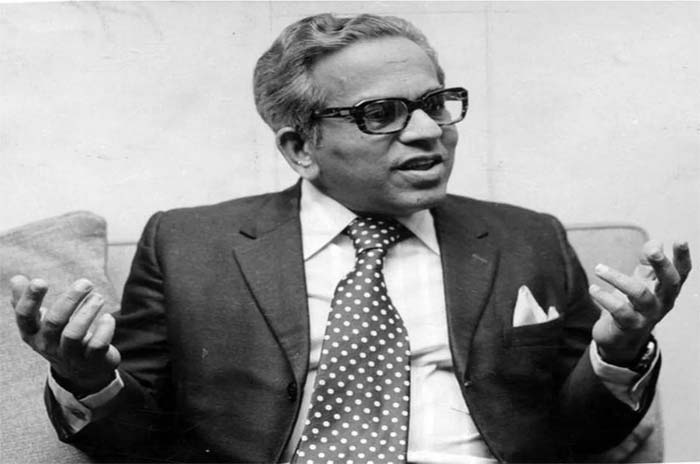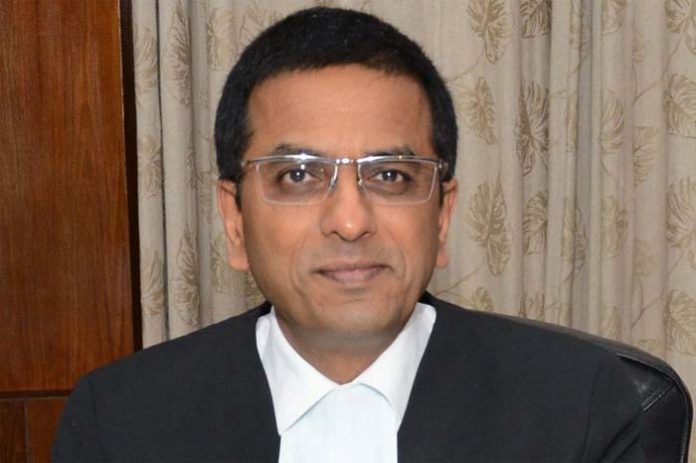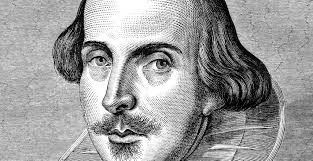Honourable Justice D Y Chandrachud is under direct and indirect attack for granting the bail to Pro-BJP campaigning tv anchor Arnab Goswamy. The justice said: If we don’t interfere in this case today, we will walk on path of destruction. If left to me I won’t watch the channel and you may differ in ideology, but Constitutional courts will have to protect such freedoms…”
If the name of beneficiary is kept aside, each word of Chandrachud is principle of rule of law and justice and deserves admiration. This order enhanced his image as promoter of constitutionally guaranteed personal liberty.
Its true that hundreds of individuals in this country are detained for no valid reasons and they deserve bail more than this biased tv anchor. Justice Chandrachud knows that such attack would be there against his order. Because of this order, other journalists are discussing the illegal cases of incarceration and exposing the unbridled police/government power of pre-trial detention. I personally thank him for leaving this scope.
A full-fledged prosecution needed
In fact, the rule of law demands, a full-fledged prosecution without any lenience of the allegations of abetment to suicide by not paying the dues. His profession as pro-establishment journalist should not come in the way of fair trial. Like every citizen, Arnab has freedom of speech under 19(1)(a), and a duty to face prosecution for the offence alleged.
Chandrachud’s strong dissent is significant in September 2018 when SC majority (Dipak Misra, AM Khanwilkar) rejected plea to constitute Special Investigation Team to probe the causes of arrests of lawyers and activists in Bhima Koregaon violence case. Historian Romila Thapar and four activists filed a PIL asking for SIT. Justice Chandrachud J. opined that technicalities cannot be allowed to override substantive justice. He also berated the Maharashtra police for what he termed as using electronic media selectively for shaping public opinion. Ironically, in Arnab case, Justice Chandrachud rejected technical grounds for personal liberty but ignored the abuse of freedom by Arnab for selectively shaping public opinion, which he opposed in Bhim Koregaon case.
He said: “Dissent is the safety valve of democracy”. The Pune police had arrested five activists- Sudha Bharadwaj, P Varavara Rao, Gautam Navlakha, Arun Ferreira and Vernon Gonsalves last month. The SC refused to allow the release of five activists.
Immediately after the interim order by Supreme Court in Bhim Koregaon case, Pune Police organized a press conference. Justice Chandrachud referred to this and said that it was as an attempt to selectively leak information and called it “disconcerting”. He was right in condemning the use of electronic media and police briefing by media as a way of shaping public opinion according to their needs.
The police also alleged that accused Sudha Bhardwaj wrote a letter and a TV channel flashed it. This kind of selective disclosure of probe details by police will raise questions on fairness of the investigation. Justice Chandrachud pointed out doubts about fairness of police probe. He ordered SIT probe saying that voices of opposition cannot be muzzled because it is unpopular.
Freedom of Hadiya to marry a Muslim
CJI Dipak Misra, Chandrachud and Justice AM Khanwilkar bench decided another important case on personal liberty in the Hadiya case. Fortunately the judgment was a unanimous ruling against Kerala High Court which had annulled the marriage of Hadiya. She was a Hindu converted into Islam to marry Shafin Jahan. Kerala HC annulled the marriage saying this marriage was not free from coercion. HC had also ordered Hadiya to be placed in the custody of her parents. Supreme Court set aside Kerala High Court judgment in Hadiya case.
Justice Chandrachud, in his separate concurring judgment, wrote that the Kerala High Court, in the case, treaded on an area which must be out of bounds for a constitutional court. He further said: Courts as upholders of constitutional freedoms must safeguard these freedoms. Interference by the State in such matters has a seriously chilling effect on the exercise of freedoms,” the judgment said.
Against imposition of disproportionate bail conditions
In a very recent judgment, Justice Chandrachud held that conditions which a court imposes for the grant of bail have to balance the public interest in the enforcement of criminal justice with the rights of the accused.
In yet another case, a US Green card holder (Indian citizen and resident of USA) prayed to relax his bail conditions so that he could travel to US. He used to frequently visit India. He was arrested in February 2020. Though the Bombay High Court released him on bail in May 2020 it directed surrender of passport and green card. The bench headed by Justice Chandrachud overturned decision of Bombay High Court and allowed the accused to travel to US for a period of 8 weeks.“The human right to dignity and the protection of constitutional safeguards should not become illusory by the imposition of conditions which are disproportionate to the need to secure the presence of the accused, the proper course of investigation and eventually to ensure a fair trial, he stated.
Bench headed by Justice Chandrachud granted interim bail for one month to Unitech promoter, Sanjay Chandra on July 7, taking into account the fact that both his parents were infected with Covid-19. However, he refused the bail to Sanjay and his brother who defied the conditions imposed in 2017 for bail, by not depositing Rs 750 Crore to be eligible for bail. They were arrested by the Economic Offices Wing of the Delhi police in March 2017 as probe indicated that money realised from the flat buyers has been siphoned off.
Justice Chandrachud’s bench on June 9, 2020 granted bail to a person who had been languishing in jail for over 3 years as an undertrial.The person was accused of committing dacoity, kidnapping, and causing voluntary hurt but charges were not framed.
Former Chief Justice Y V Chandrachud
This is the second time Justice D.Y. Chandrachud has overturned the verdict of His father, former Chief Justice of India Y.V. Chandrachud gave a (4:1 majority) judgment in 1976, during emergency in the in-famous ADM Jabalpur case saying Article 21 is the sole repository of all rights to life and personal liberty and when suspended takes away those rights altogether.
His son DY Chandrachud, in 2017, as part of nine-member Bench of SC deciding privacy as Fundamental right held that his father’s 1976 verdict which is part of majority judgement by a five-judge constitution bench “seriously flawed.” He wrote: “The judgements rendered by four judges are flawed. Life and personal liberty are inalienable to human rights. No civilised state can contemplate encroachment on life and personal liberty.”

Thirty-three years after his father upheld the validity of adultery law, Justice D.Y. Chandrachud ruled that the earlier view cannot be regarded as “correct exposition” of the constitutional position. The SC Bench in 2018 struck down section 497 of the IPC dealing with adultery, Justice D.Y. Chandrachud said the 1985 judgment dealt with the “constitutional challenge by approaching the discourse on the denial of equality in formal and rather narrow terms.”
Chandrachud’s great orders
On September 26, 2018 SC upheld the constitutional validity of Aadhaar, though it struck down multiple sections of Aadhaar as unconstitutional. While the SC bench in a 4-1 upheld the legality of the Aadhaar, Justice Chandrachud gave dissenting judgement saying, “Aadhaar programme in its entirety is unconstitutional.” He also objected to the fact that the Aadhaar act was passed as a money bill. A money bill doesn’t require debate in Rajya Sabha and would require passage only through the Lok Sabha and held: “It constitutes a fraud on the Constitution. The ruling party in power may not command a majority in the Rajya Sabha. But the legislative role of that legislative body cannot be obviated by legislating a Bill which is not a Money Bill as a Money Bill.”
Loya Case
But there is one judgment in the recent times, which is highly controversial, that is the verdict on the Justice Loya case. The SC bench headed by CJI Dipak Misra and consisting Justices Chandrachud and AM Khanwilkar dismissed petitions seeking an independent probe. The bench also observed that the conduct of the petitioners was lacking in bonafide and it revealed a misuse of the judicial process.
Seeking mercy of justice
Ismat Ara and Sukanya Shantha, journalists of the wire.in, a web portal have collected some more names of arrested persons in recent times, who had no luxury of Supreme Court’s kindness.
- April 1: Meeran Haider, a PhD student of the Jamia Millia Islamia University was arrested. Allegation: Conspiring to incite large-scale communal violence in Delhi in February, during protests against Citizenship Amendment Act. No bail, though he told he had no warm clothes and medicines in jail.
- May 16: Asif Iqbal Tanha, a third year undergraduate Persian language student at the Jamia Millia Islamia University, was arrested by the Delhi police: Allegation: Link with Jamia violence of December 15, 2019 and north-east Delhi violence in February, anti-CAA struggle. Bail rejected, though he was not even present in the events.
- April 26: Shifa Ur Rehman, President of the Jamia Millia Islamia Alumni Association arrested on similar grounds. Judge doubted statement of police that Shifa refused to appear by video conference. “In this country, you cannot simply pick somebody and put him in jail and tell him that you cannot meet even your lawyer,” Justice Vibhu Bakhru had said.
- September 13: Umar Khalid is arrested. Linked to Delhi Riots.
- May 23: Natasha Narwal and Devangana Kalita were arrested: Linked to protests against CAA. Bail was given to Kalita. But immediately arrested in ‘violence’ case. Delhi HC gave bail. SC dismissed police appeal. Yet she is not released as another FIR was lodged. Narwal was also given bail, but was detained in another FIR.
- January 28: Sharjeet Imam is arrested for speeches in CAA protests. Sedition case is registered. Probe time extended under S 43D of UAPA, which deprives him of statutory access for bail. He is in jail for 289 days, probe is yet to be completed. No bail.
- October 6. Siddique Kappan, Delhi journalist was arrested as he was going to report the Hathras crime. He was booked under UAPA, IPC and IT Act. Allegedly involved in Hathras ‘conspiracy’ case. The Kerala Union of Working Journalists (KUWJ) had filed an application in the Supreme Court for directions to hear Kappan’s bail application. It is filed on the day of Arnab’s bail petition.
- August 31, 2018: Aasif Sultan, a journalist who wrote an article on Burhan Wani, was arrested on August 31, 2018 on charges of providing logistical support to a banned militant organisation. No bail.
- Patricia Mukhim arrested for her facebook post on attacks on non-tribals. The Meghalaya high court, on November 10, refused to quash a criminal case.
- January 2020, Gautam Navlakha, 67 years, a Delhi journalist and Anand Teltumbde, an academic and civil liberties activist were arrested after NIA took probe of Elgar Parishad case. Their personal liberty is not considered.
- Stan Swamy, an 83-year-old Jesuit priest and tribal rights activist based in Jharkhand was arrested in Elgar Parishad case. Suffering from several age-related issues including Parkinson’s, He cannot even sign his legal papers. His Bail is rejected. A petition was filed seeking permission to use a straw and sipper in prison to drink water, as he cannot hold a glass because of Parkinson’s disease. The NIA sought a good 20 days to respond on Swamy’s plea and it was given. It is also an issue of humanity.
- August 2018, Varavara Rao, 80, poet and rights activist arrested. Several petitions for essential medical care, treatment to prevent COVID-19 etc were rejected. His bail applications filed both on merit and his health conditions have also been rejected. On November 12, senior advocate Indira Jaising told that she was afraid that Rao would lose his life if he continued to be in jail. “He suffers from a neurological condition, he is bedridden, his catheter is not changed for more than 40 days. Do you think a man bedridden can flee?”
- February 26, Ishrat Jahan was arrested accused of attempt to murder in a case related to violence and rioting in northeast Delhi over the amended citizenship law.
- March 5: Tahir Hussain, former Aam Aadmi Party councillor from Nehru Vihar was arrested in connection with the murder of Intelligence Bureau staffer Ankit Sharma in northeast Delhi.
- April 9: Gulfisha Fatima, 29 a Delhi University alumnus and MBA graduate was arrested on the basis of an FIR on the Jaffrabad anti-CAA sit-in.
- February 2020: Khalid Saifi arrested by the Delhi Police Crime Branch in connection with riots in Chand Bagh area. While granting him bail in another case, Additional Sessions Judge Vinod Yadav observed that Delhi police’s method of chargesheeting Saifi over insignificant material displayed “total non-application of mind by the police, which” went “to the extent of vindictiveness.”
- Released:December 2019: Akhil Gogoi, the leader of the Krishak Mukti Sangram Samiti (KMSS), Assam, was arrested as a “preventive measure”. His three associates—Dhaijya Konwar, Bittu Sonowal and Manash Konwar—were taken into custody the next day by the NIA under the Unlawful Activities (Prevention) Act for ‘waging war’ against the nation and eventually released in July.
- Bail for two persons: Two people charged under UAPA have been granted bail in the Delhi riots cases. Safoora Zargar, a student at the Jamia Millia Islamia University, who was pregnant when she was arrested amid the pandemic, and Faizan Khan, a salesman of mobile phone SIMs against whom the Delhi high court did not find any prima facie evidence.
I think all the people should tell the judges at apex court:
If you (the Supreme Court)do not interfere in these cases, we will walk on path of destruction. ….. you may differ in ideology, but Constitutional courts will have to protect such freedoms…”




